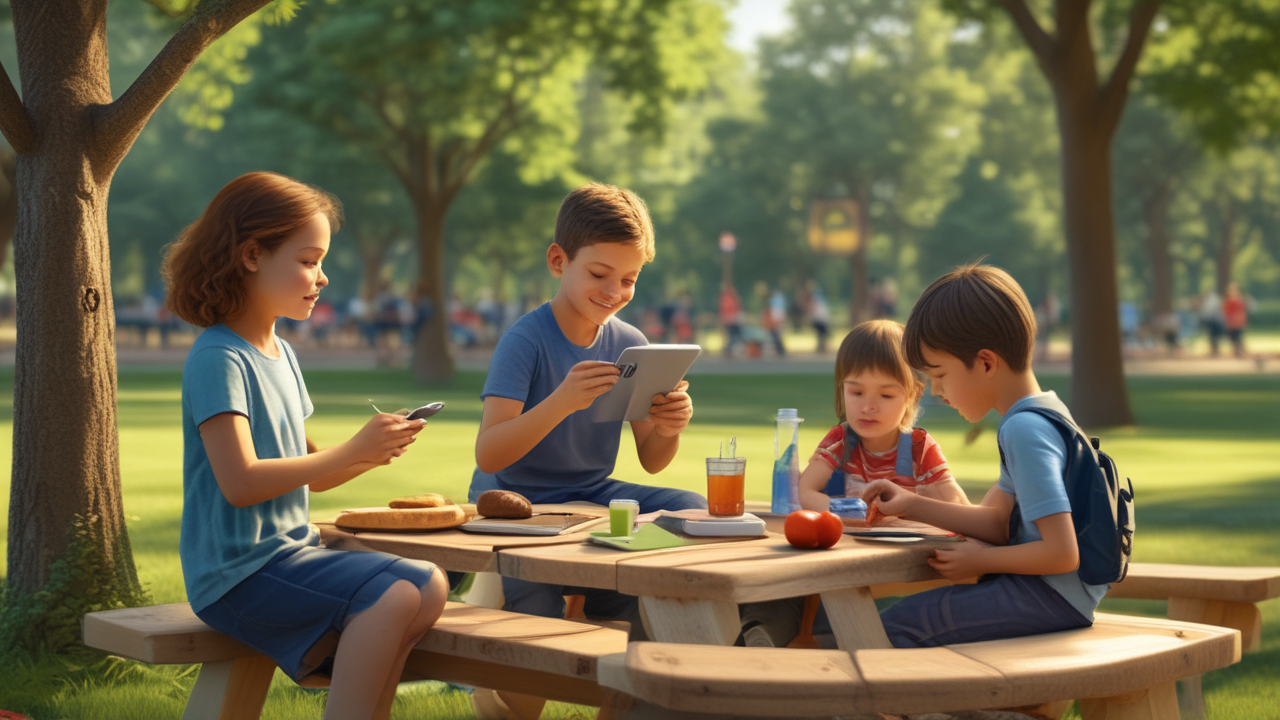Orlando Mental Health Counselor’s Tips for Smart Screentime
School’s out for summer! But it’s not 1972, its 2023, and the ways families and kids spend their Summers between each school year have not changed entirely. Kids still go to camps, attend tutoring sessions, go to school of rock classes, catch up on sleep, go for bike rides, vacation with family, go to the beach, get bored, go to the movies, and the list goes on. However, what is different, is the generational increase of screentime usage and immersive screen time experiences (virtual reality headsets, 4K resolution televisions, high resolution video game graphics for realism, etc.). In comparison to each decade, as first seen through the development of television or handheld videogame electronics in the early 1990’s, we now have over-usage to the point of screen time addiction, in combination with a technology market that releases the new option almost annually, thus an overabundance of tablets and cellphone screens more commonly found now and since the early 2010’s.
Managing a child’s device effectively can help establish healthy screen time habits, including daily screen time limits, and positive habits by assigning children tasks, ensuring they have focused periods for homework time, dinner table time, and sleep time while still enjoying their favorite apps and games, and possibly earning extra time by setting daily time limits to avoid excessive usage.
Managing a child’s device effectively can help establish healthy screen time habits and positive habits, ensuring they have focused periods for homework and sleep while still enjoying their favorite kinds of apps and games, as well as guiding the responsible use of screens and managing notifications – organizations like Common Sense Media recommend considering the amount of time spent on various activities, including viewing a report of your device use and the potential for rewarding additional screen time.
How does screentime impact children’s development?
Excessive screen time can negatively affect children’s development by hindering social skills, reducing physical activity, and disrupting sleep patterns. It may also contribute to attention issues and impact emotional well-being. Balancing screen time with outdoor play and face-to-face interactions is crucial for healthy growth in children.
So what do we do about it? Regulation, Monitor, Mindfulness, Breaks, Recreation (non-screen). RMMBR.
Regulating personnel screentime as adults or young people is an important individual routine and behavioral practice to do every day. In 2023 compared to 2003, a majority of academic school work, or professional office work requires students and workers to spend many hours on using a tablet or computer screen every day. If someone is required to use screentime for productivity, it is important we all regulate how much recreational screentime we have each day and within a week’s time span in order to not experience overuse of screentime, which I like to call “screentime saturation” or “screentime mental and mood fatigue”. Screentime saturation is a term to describe how much time of screen viewing a person can appropriately handle in a day before they can no longer pay adequate attention to what is being read, studied, or worked on at school, the office, or at home. Once a person has reached their “screentime saturation” of the mind, that person is likely to be experiencing varying levels of mood changes, forgetfulness, inattention issues, and a variety of cognitive deficits related to the “screentime fatigue.” Screentime fatigue can also been seen in multiple ways, such as difficulty in paying attention to required work on the screen for school work or office work due to the person’s weekly and daily excessive screen time on video games, or video watching on a tablet or phone that is close to the face without taking appropriate breaks throughout the day.
Monitor how much you are using your cellphone on social media or non-learning apps. We can learn from news content on phone apps, but an alternative to social media can be learning a new skill, such as using a free Chess app which an adult or young people can enjoy and learn a time-tested cognitive challenging recreational activity that crosses time and borders.
Mindfulness of your screentime and the screentime of your kids. Yes, handing a young person a tablet to watch a new episode or short video can entertain them and help them to quiet down, but is that truly going to train the mind and nervous system of that young person to be self-regulated and more self-entertained? The research says no, the earlier a child begins using screens and the amount of screentime for long periods of time show negative outcomes for undesired behavioral patterns and an underdevelopment in coping skills and self-regulation because of the screentime addiction which children and adults can develop over time. So be mindful of when you and your family members are scrolling and clicking from one video to the next!
Breaks from screentime and Recreational activities away from screens are ideal pastimes in the summer, but living in Florida or elsewhere can mean hot temperatures or thunderstorms. So what are some other options to do inside? Ask your yourself and family members, what did our grandparents or great grandparents due for fun before tablets, 4K television screens, video game consoles, streaming videos, and endless social media updates? Our family members played the following:
- Boardgames
- School summer reading
- Sports
- Read for fun
- Practiced sports
- Movie theaters
- Day camps
- Crafts,
- Practiced or listened to music
- Used blank paper or coloring books to practice art
Essentially rediscovering a multitude of ways to have fun without screentime in order to take back our cognitive awareness and dopamine reward systems in the brain and nervous system to be more mindful in everyday life.
The American Academy of Pediatrics emphasizes the importance of limiting screen time for children, recommending that those under 18 months avoid media use altogether, and for ages 2 to 5, restrict it to just one hour per day of high-quality programming
Sleep, Diet and Exercise – Enjoy the summer with old and new friends, catch up with family members, read for fun, and learn for fun as well! Keep the brain running over the summer months like an engine staying warm during freezing winter months. If we want students to start the fall semester with a successful pace, then continue or begin academic habits now when there is less pressure. Also, talk to your student about the importance of waking up early enough to eat breakfast every day in order to start the day with the nutrition needed to make dopamine and serotonin and decrease the possibilities of the hangry teenager who was up too late playing video games the night before. Have a great summer and reach out to the office if you want to talk more about individual or family counseling services and wellness information!
If you feel you, your child or teen is addicted to technology please reach out to a mental health professional for help!
David Duaney, MS, RMHCI
Edited – James L West, MA, LMHC, NCC
Filed in: Adults, Gaming, Jim West, Media, Parenting, Self-Care, Teens, Video and Social Media Addiction
Share This Story, Choose Your Platform!
Total Life Counseling Center consists of Licensed Counselors, masters level therapists, Español counselors, Licensed Mental Health Counselors, business coaches, and image enhancement coaches who provide counseling for emotional, mental, physical and spiritual care including marriage, individual, family, substance abuse and more. TLC’s family, trauma and marriage experts have been interviewed on National and Local TV/Radio over 200 times for their expert advice on Fox News, OWN, WETV, ABC’s Medical Minute and more. Our skilled counselors are relational, approachable and specialists providing therapy services in the Central Florida area including: Orlando, Winter Park, MetroWest, Windermere, Dr. Phillips, East Orlando, Lake Mary, and Clermont, Boca Raton Florida, and Dallas, TX.







